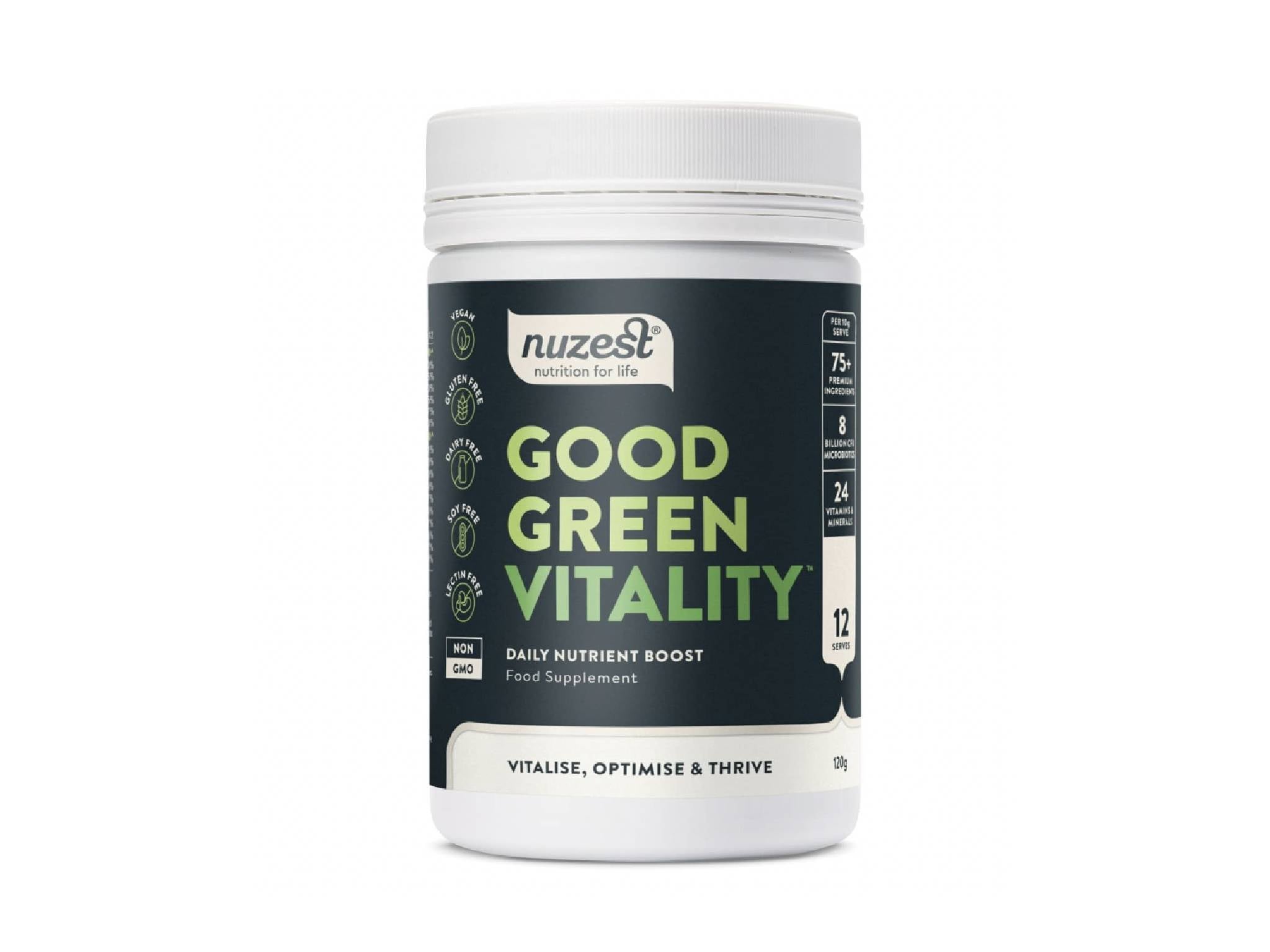
The Independent's journalism is supported by our readers. When you purchase through links on our site, we may earn commission.
Best multivitamins for women, men and children, according to experts
If you’re looking to improve overall health, these multivitamin tablets and powders could help give your body a boost
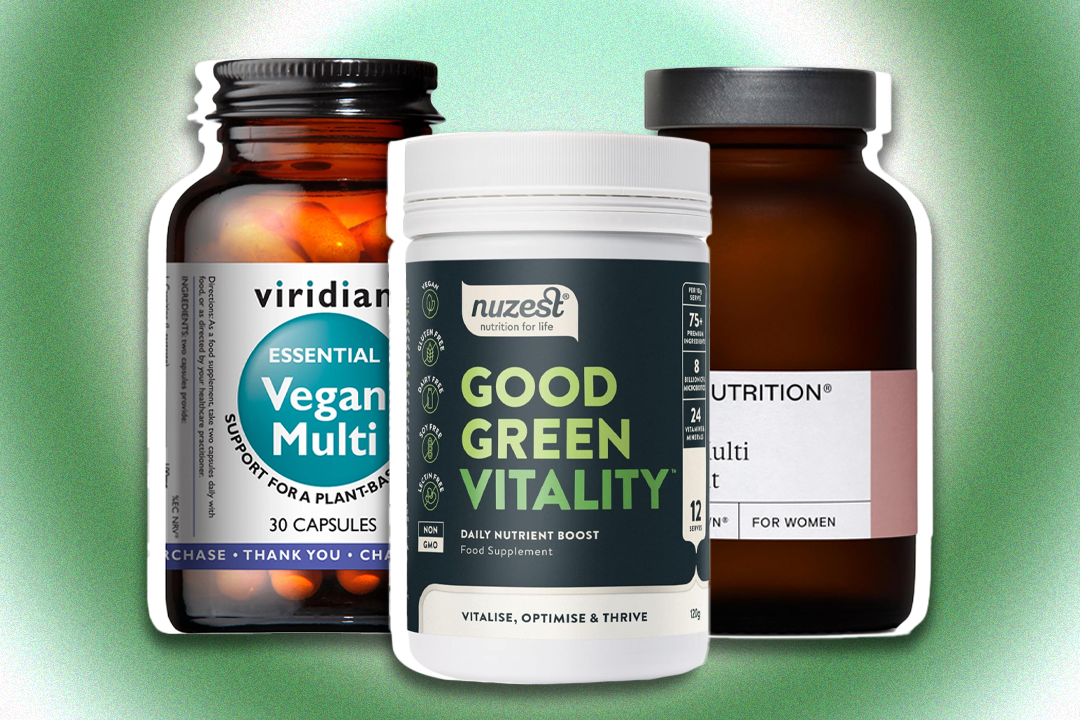
When the body is lacking in nutrients like essential vitamins and minerals, it can significantly affect all aspects of health, from cognitive function to how often you get sick. But between life being busy, individual health requirements and having the time and energy to prepare and cook the healthiest meals possible, getting the nutrients you need can often feel like a tricky balance to strike.
Taking vitamin supplements can top up your dietary intake and most offer different combinations to suit different bodies and life stages. You can find vitamins to support menopause, to help with gut health or supplements for healthier hair, skin, nails and joints.
Multivitamins present a clever way of combining all the elements of varying supplement types in one capsule and most people take them to hit their recommended daily allowance of vital nutrients, helping to improve energy levels, immunity, brain health and bone strength. Multivitamins are also useful for kids and teens, giving their growing bodies and brains the extra nutrients they need to thrive. Whether you’re seeking to boost your energy, enhance immunity, or fill nutritional gaps, a high-quality multivitamin can make a big difference
Specialist menopause nutritionist Emma Bardwell says, “I will often recommend a multivitamin for a prescribed duration, particularly if a person is time-poor and doesn’t have the bandwidth to remember to take a regime of targeted nutrients. With a multivitamin, you get everything in one go.”
If you’re wondering how to add a multivitamin into your daily routine, nutritionist Maz Packham advises that, “it’s usually best to take a multivitamin with food, so getting into the habit of having it with your breakfast can be a good way to remember. If your meal contains some fat (think avocado, eggs or nuts) it will optimise absorption of the fat-soluble vitamins A, D, E and K.”
Though there are plenty of multivitamins to choose from, they’re not all created equal. You want to ensure you’re investing in a supplement with the right amounts of balanced high-quality nutrients that will impact the body in the best way.
We sought the advice of Maz Packham and Emma Bardwell to find out which multivitamin products they’d personally recommend, how to take them and which might be best suited to differing diets and lifestyles. Read on for our guide to the best multivitamin caspules and powders to boost wellbeing, approved and recommended by expert nutritionists.
Nuzest green vitality

- Servings : 10
- How to take: One scoop with 250ml of water
This multivitamin greens powder is a complex multi-nutrient formula with over 75 high quality vitamins, minerals and other essential nutrients. Each serving also contains 8 billion CFU probiotics, prebiotics, enzymes, psyllium and aloe vera to boost gut health. Packham explains it “covers all your nutrient needs, from Vitamin A to zinc, in meaningful doses, so it helps optimise your health in a safe way”.
Simply mix one scoop of powder with 250ml of water or juice and drink once a day. Packham recommends the product for people with a busy lifestyle, who “struggle to achieve their daily intake of nutrients through vegetables and fruits but want to look after themselves by supporting health goals like energy, sleep and immunity”.
The plant-based vegan powder is gluten- and dairy-free and there’s a multinutrient smoothie mix (£25, Amazon.co.uk) for kids too.
Wild Nutrition food-grown daily multinutrient for women
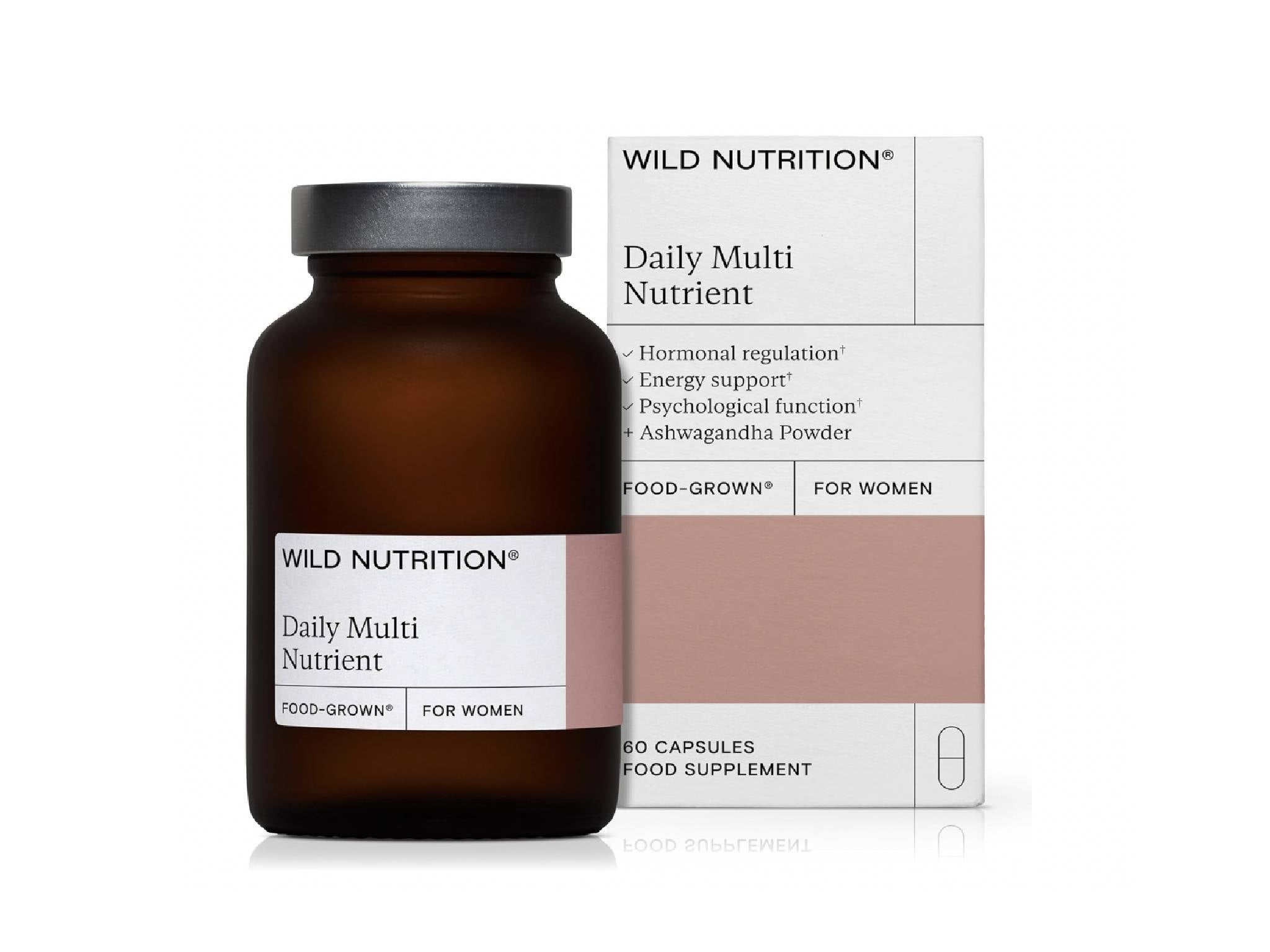
- Servings: 30
- How to take: Swallow two capsules daily
This multivitamin contains a full spectrum of vitamins and minerals to support a woman’s busy lifestyle, help regulate hormones and monthly cycle and strengthen the immune system. Zinc, selenium, alpha lipoic acid and beetroot plant antioxidants work in harmony to protect against seasonal coughs and colds and protect the body from pollutants. Meanwhile beetroot and choline offer liver support and vitamin B6 is included for its effects on hormone balance.
“Food-grown supplements like this one are made from concentrated whole foods, which provide nutrients in a form that more closely resembles how they exist in nature, to make it easier for the body to recognise and use. Some synthetic forms of nutrients in supplements may have different structures and not be so well metabolised by the body,” explains Maz Packham.
Key components include zinc, selenium, B vitamins, magnesium, calcium and Vitamin C, and the supplements are suitable for vegans. Packham says, “it’s important to remember that a combination of nutrients that exist in foods work really well together, for example, Vitamin C can enhance the absorption of non-heme iron from plant sources.”
Wild Nutrition food-grown daily multi-nutrient for teen boys
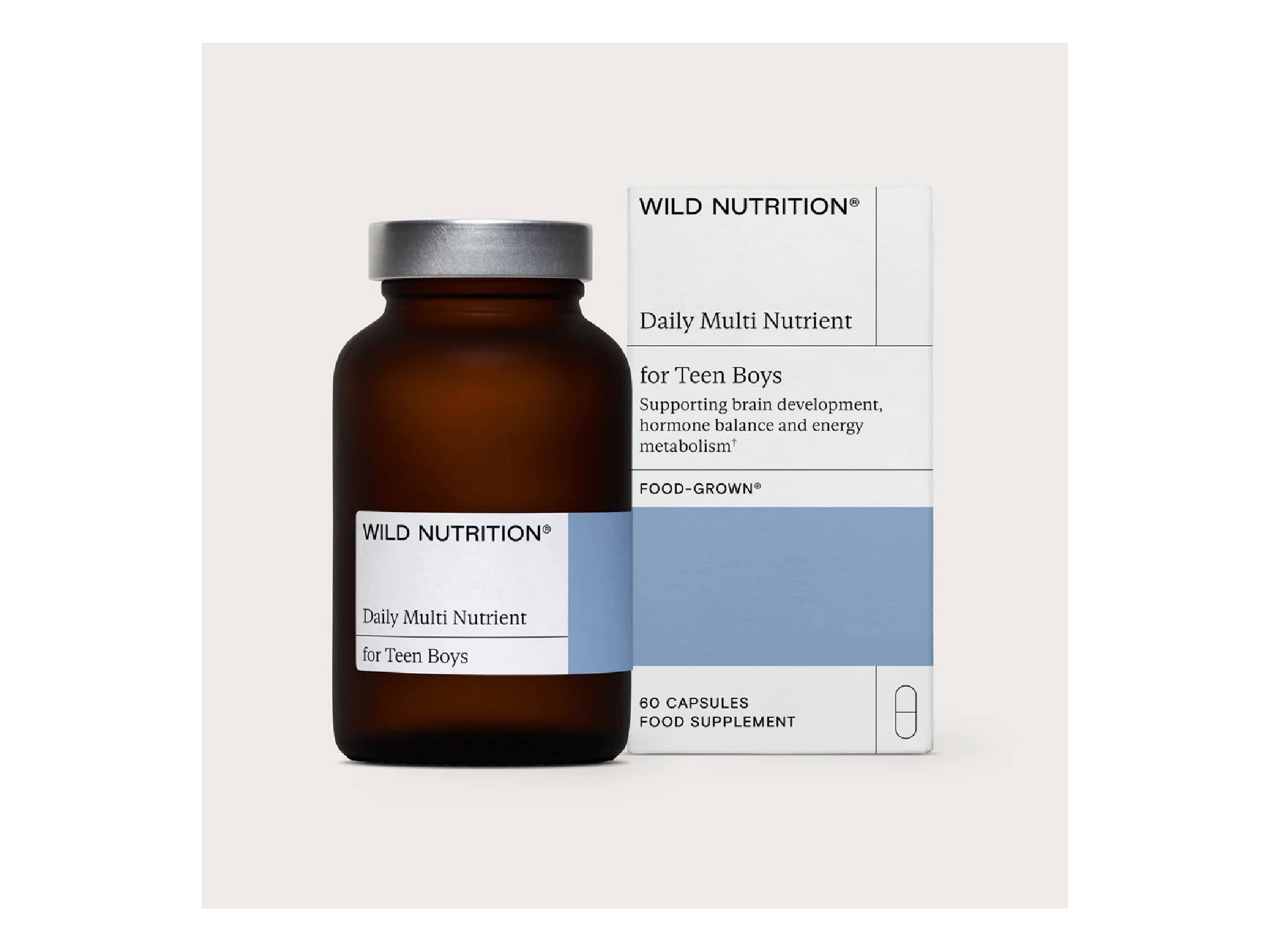
- Servings: 30
- How to take: Swallow two capsules a day
This multivitamin is specifically made for teenage boys, and it aims to help with energy, bone growth, brain function and more. Vitamin B6 supports hormone regulation and Vitamins C, B1, B2 and B12 support normal energy-yielding metabolism.
Studies have shown that low intake of B-Vitamins is associated with poor adolescent mental health and behaviour, so this supplement aims to top up their levels. It can also help them cope with the pressures of school and maturing emotionally, as zinc contributes to cognitive function and pantothenic acid contributes to normal mental performance.
The targeted multivitamin could be “helpful for growing teens, who don’t always make healthy food and lifestyle choices, and offers a good choice for any parents worried about children who are picky eaters”, explains Bardwell.
In addition to the multivitamins for teen boys and the targeted women’s health option, Wild Nutrition’s range of multivitamins includes those formulated for teenage girls (£28, Amazon.co.uk), men (£33.50, Amazon.co.uk), children (£19, Amazon.co.uk) and those aged over 45 too.
Centrum advance 50+
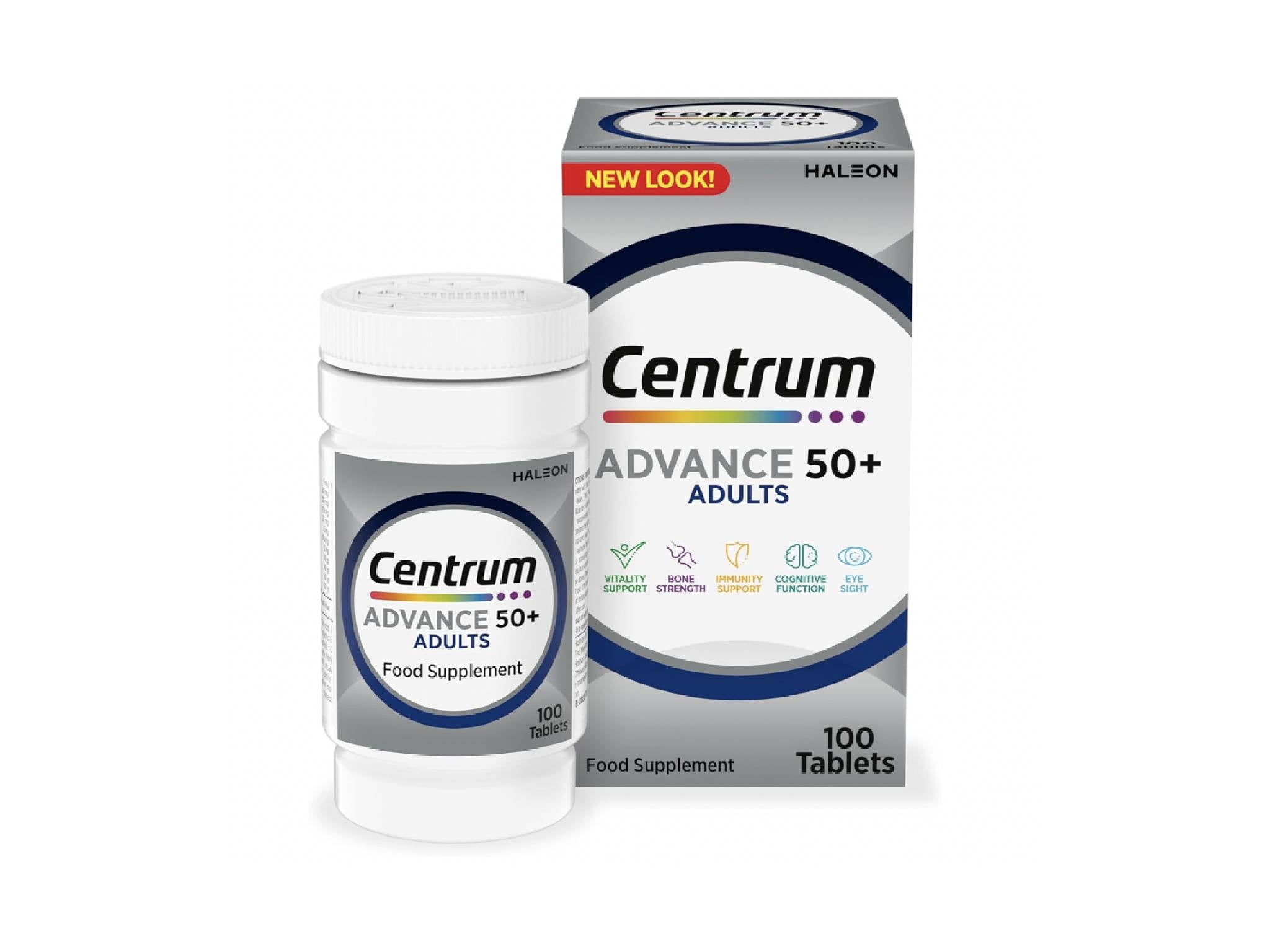
- Servings: 180
- How to take: Take one tablet daily with water
Specifically targeted at men and women over 50, this gluten-free multivitamin contains 24 vitamins and minerals, including iron, vitamins B, C and D and zinc. As our bodies age, the immune system can weaken and we get tired more easily, but this formula contains Vitamin C and D which contribute to the normal function of the immune system, and Vitamin B12 which contributes to the reduction of tiredness and fatigue.
These capsules also tackle declining bone health and diminishing eyesight with magnesium which contributes to the maintenance of normal bones, and Vitamin A which contributes to the maintenance of normal vision.
“Recent research conducted in the US on a group of 2,000 people linked taking a multivitamin with improved memory, executive function, and cognition. Centrum was the brand used in the study and participants took it for three years,” shared Bardwell.
“I would say do your best to get what you need from diet, but if there are limitations then potentially a broad-spectrum multivitamin might be a worthwhile investment, just don’t rely on it as your main source of nutrition,” she adds.
Pure Encapsulations o.n.e multivitamin
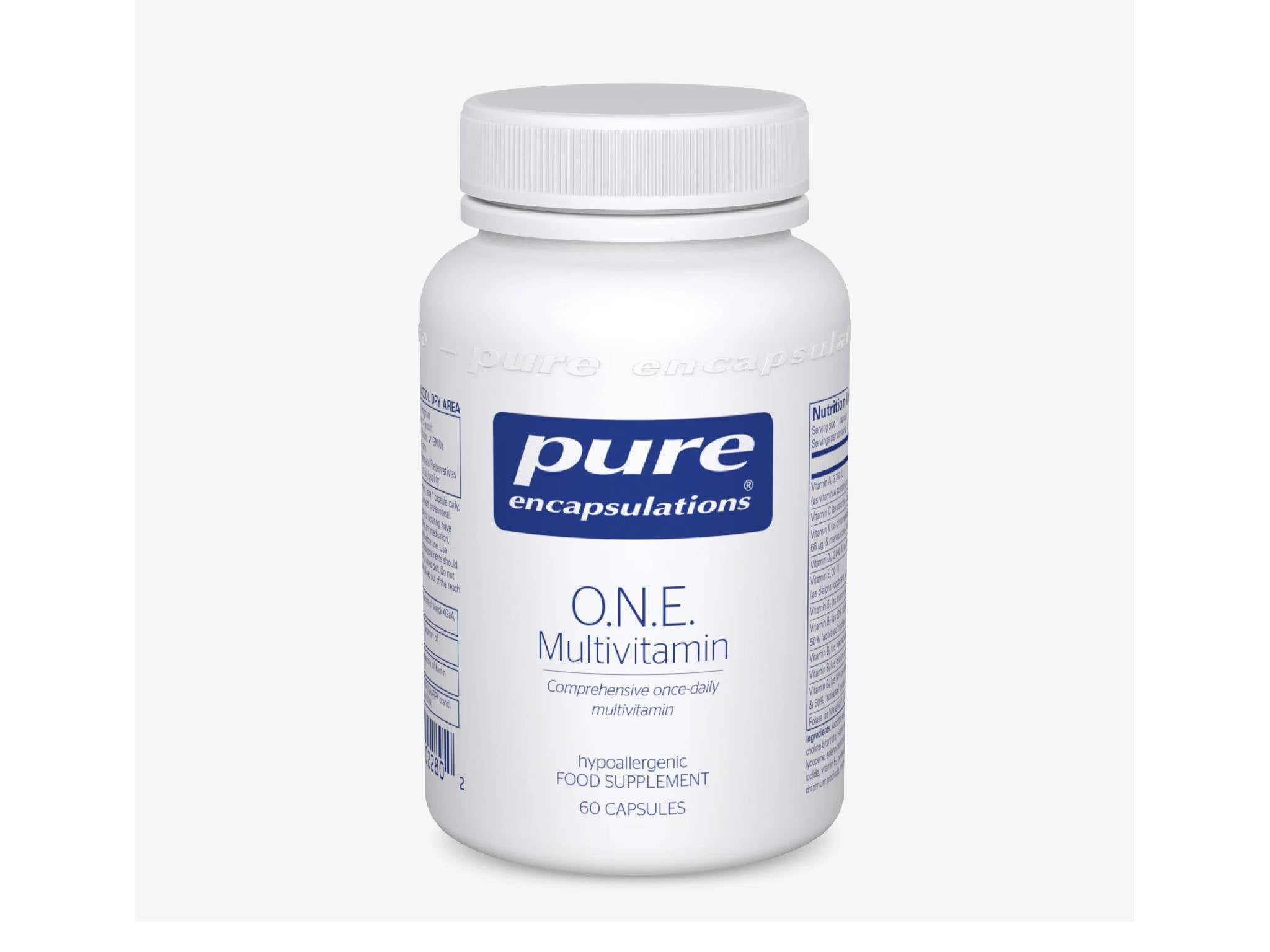
- Servings : 60
- How to take: Take 1 capsule daily, with a meal,
When it comes to vitamin supplements, “bioavailabity” is a word you should keep in mind. Higher bioavailability means the body absorbs more nutrients without needing to take higher doses. Pure Encapsulations use the highest-grade ingredients, sourced responsibly, for a highly bioavailable supplement.
One example of the ingredients included is methylfolate, which is the biologically active form of folate (or folic acid).
“We can get folate through our diets – it’s really abundant in dark green leafy vegetables like spinach, for example – but when eaten in this form it needs to go through a conversion process in the body to become active, and some people have genetic variations that mean they are less efficient at this conversion, so consuming it in its active form can be helpful for some people,” notes Packham.
The supplement itself is “designed to be an all-in-one capsule that you take once a day, which provides a really broad profile of vitamins, minerals and phytonutrients in bioavailable forms, making it easier for the body to absorb and metabolise”, explains Packham.
Bardwell adds, “it is not the cheapest but covers all bases, and this a brand that uses no fillers, anti-caking agents or binders.”
Viridian essential vegan multivitamin
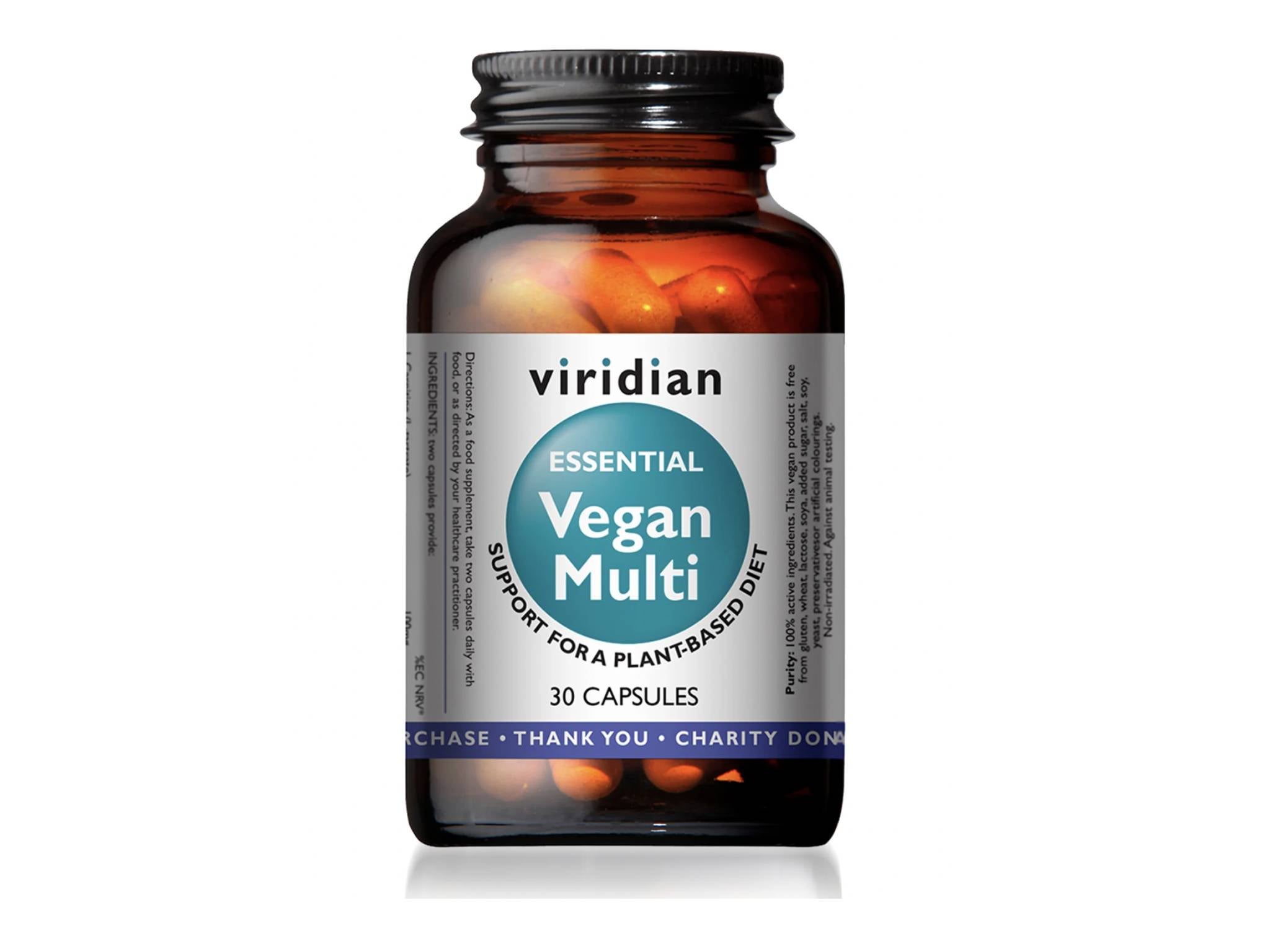
- Servings: 30
- How to take: Take one capsule daily with food
There are 27 nutrients included in this vegan-friendly multivitamin, and it’s gluten-free. It’s been specifically formulated to help fill the nutritional gaps in vegan, vegetarian and flexitarian diets.
Designed to be taken once daily with food, components cover bone strength support from K2 and D3, as well as B12 and iron for energy and cognitive function. B12 is mainly found in animal sources, meaning that vegans are unlikely to get it from diet alone and a deficiency could lead to anemia, nervous system issues and heart disease. Vegans also need about twice as much iron as non-vegans because plant-based products contain nonheme iron, which is harder for the body to absorb.
Bardwell says, “even the best vegan diet will possibly fall short on several nutrients, namely iodine, B12, Vitamin D and iron, leaving plant-based eaters feeling tired, listless, and potentially more susceptible to coughs, colds and viruses. This one-a-day covers all four nutrients, plus many more.”
Equi wellness formula
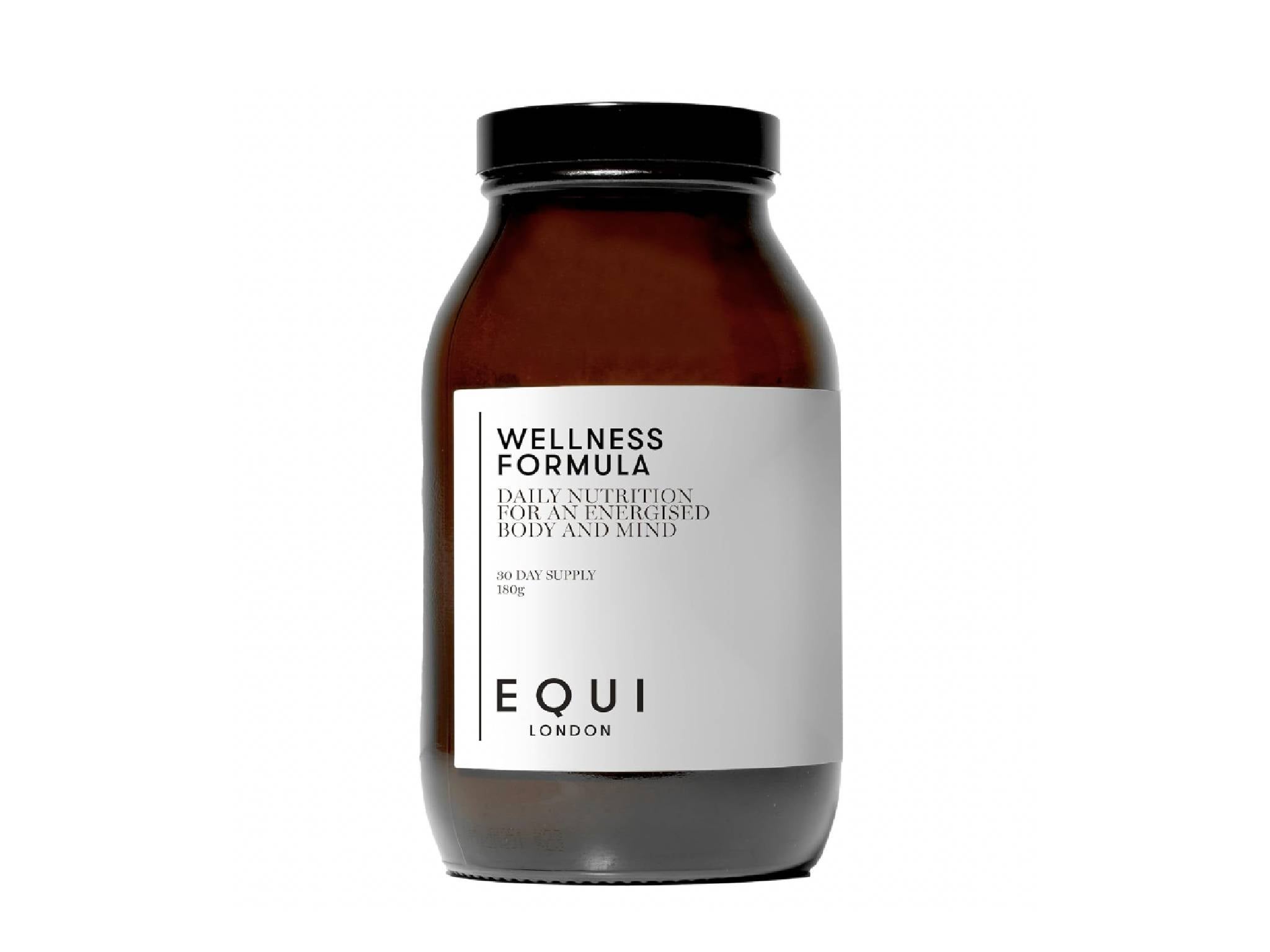
- Servings: 30
- How to take: Swallow six capsules a day with water
Good digestion, balanced hormones, sound sleep and strong immunity are all key for a healthy body and mind and this supplement is designed to keep all of these functions operating at their best. It comes in caspule or powder versions, both of which are the same price, which is handy if you want to avoid taking tablets.
Frmulated by nutritional scientists, this formula contains 46 nutrients including magnesium, Vitamin D and vegan probiotics. While it’s pricier than other multi-vitamins, it contains many more unique ingredients such as adaptogenic herbs alongside Vitamin B6 to help regulate hormones. Siberian ginseng works alongside B vitamins and magnesium for mental clarity and bilberry energises the body, mind and digestion with polyphenol-rich antioxidants.
“This is an advanced multivitamin that nourishes all of the body systems and takes a holistic approach to support everything from energy to digestion and detoxification for better focus, energy and immunity,” according to Packham.
Multivitamins FAQs
Should I be taking multivitamins?
“While I’m not an advocate of supplements for supplements sake, I do think there can be an argument for taking a multivitamin as an insurance policy under certain circumstances,” explains Bardwell. She outlines that chronic stress can use up vital nutrients such as Vitamin C, magnesium, and many of the B vitamins. “Taking a multivitamin can also be beneficial when not eating particularly well or drinking too much alcohol after, let’s say, the festive season or for university students,” she adds.
Plus, age and health concerns come into the equation, too. “There’s also a lot to be said for taking a good multi as we get older, especially during or after illness. Older populations tend to have problems with malabsorption of nutrients, in which case a multivitamin can act as an insurance policy,” Bardwell says.
How long does it take for multivitamins to start working?
It depends on each individual when it comes to how long multivitamins take to start working, as this can vary according to absorption, any deficiencies and health conditions. As a general rule of thumb, multivitamins should take between a few weeks to a few months to start working.
Can you take too many vitamins and supplements?
It’s important to keep an eye on what you’re taking. Bardwell advises that, “if you’re taking a multi but also taking targeted supplements, you may actually find that the combined dose takes you over the RDA, which, in certain circumstances, can be deleterious to health”.
She adds: “There’s a general feeling that supplements are ‘natural’ so can be taken ad libitum – that isn’t the case. Large amounts of beta carotene and vitamin A, for example, may increase lung cancer risk in smokers and former smokers. Too much iron can result in something called hemochromatosis, which can damage your heart, liver and other organs.”
Bardwell also outlines that while the “dosages may not always be in accordance with the recommended daily amount (they often offer less than the RDA to allow for added vitamin and mineral intake from your diet), certain ingredients may interfere with prescription medications”. As always, speak to a qualified medical professional for expert advice.
Want to save money on air fryers, food processors and more? We’ve rounded up the best deals at Amazon right now
